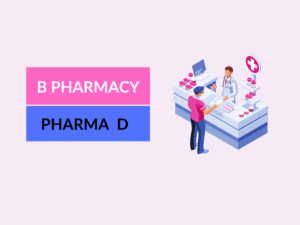Difference Between D Pharm and B Pharm
Are you confused between D Pharm and B Pharm? Want to know the key differences between these two pharmaceutical programs? This article will provide you with a detailed comparison of D Pharm and B Pharm, including their definitions, examples, uses, and a comprehensive table highlighting their differences. Read on to understand which pharmaceutical program suits your career goals.
What is D Pharm?
D Pharm, also known as Diploma in Pharmacy, is a two-year undergraduate diploma course in the field of pharmacy. It focuses on imparting the basic knowledge and skills required to dispense drugs, understand prescriptions, counsel patients, and assist registered pharmacists. D Pharm courses are offered by various medical colleges, institutes, and universities.
Examples of D Pharm
- Alex completed his D Pharm from XYZ College and now works as a pharmacy technician.
- Michelle pursued D Pharm to gain practical knowledge about drug formulations and their administration.
Uses of D Pharm
Completing a D Pharm program opens up various opportunities in the pharmaceutical industry, such as:
- Working as a pharmacy technician
- Assisting registered pharmacists in dispensing medications
- Performing pharmaceutical calculations accurately
What is B Pharm?
B Pharm, also known as Bachelor of Pharmacy, is a four-year undergraduate degree program in pharmacy. It focuses on providing in-depth knowledge and expertise in the field of pharmaceutical sciences, including drug discovery, formulation, manufacturing, quality control, and clinical research. B Pharm courses are offered by recognized universities and institutions.
Examples of B Pharm
- Sarah graduated with a B Pharm degree from ABC University and now works as a registered pharmacist.
- John pursued B Pharm to specialize in pharmaceutical research and development.
Uses of B Pharm
Having a B Pharm degree offers numerous career opportunities in the pharmaceutical sector:
- Working as a registered pharmacist in hospitals, community pharmacies, or pharmaceutical companies
- Conducting research and development for new drug formulations
- Ensuring medication safety and efficacy
Differences Between D Pharm and B Pharm
| Difference Area | D Pharm | B Pharm |
|---|---|---|
| Duration | Two years | Four years |
| Curriculum Emphasis | Basic pharmaceutical knowledge and skills | In-depth understanding of pharmaceutical sciences |
| Eligibility | 10+2 with Science stream | 10+2 with Science stream (some institutions also require entrance exams) |
| Job Opportunities | Pharmacy technician, assistant pharmacist | Registered pharmacist, pharmaceutical researcher |
| Role in Industry | Assist pharmacists in dispensing medications | Ensure quality, safety, and efficacy of medications |
| Higher Education Options | Bachelor’s degree programs | Master’s and doctoral degree programs in pharmacy |
| Specializations | Basic pharmaceutical knowledge | Specializations in areas like clinical pharmacy, industrial pharmacy, etc. |
| Legal Authority | Cannot independently dispense medications | Authorized to dispense medications independently |
| Scope | Primarily focused on assisting pharmacists | Extensive career opportunities in various pharmacy-related fields |
| Salary | Relatively lower compared to B Pharm graduates | Higher earning potential |
Conclusion
In summary, D Pharm and B Pharm offer different educational paths in the field of pharmacy. While D Pharm focuses on basic pharmaceutical knowledge and skills, B Pharm provides a comprehensive understanding of pharmaceutical sciences. The choice between D Pharm and B Pharm depends on your career aspirations and level of expertise you wish to attain.
People Also Ask:
- What is the duration of D Pharm and B Pharm programs?
- What are the eligibility criteria for D Pharm and B Pharm?
- What are the job opportunities after completing D Pharm?
- Can a D Pharm graduate become a registered pharmacist?
- What is the salary difference between D Pharm and B Pharm graduates?
The D Pharm program is typically two years long, while the B Pharm program is four years long.
For both D Pharm and B Pharm, candidates must have completed their 10+2 education with a Science stream. However, some institutions may require entrance exams for B Pharm.
After completing D Pharm, individuals can work as pharmacy technicians or assistant pharmacists to assist registered pharmacists.
No, only B Pharm graduates are eligible to become registered pharmacists.
B Pharm graduates generally have a higher earning potential compared to D Pharm graduates due to their advanced knowledge and expertise.


